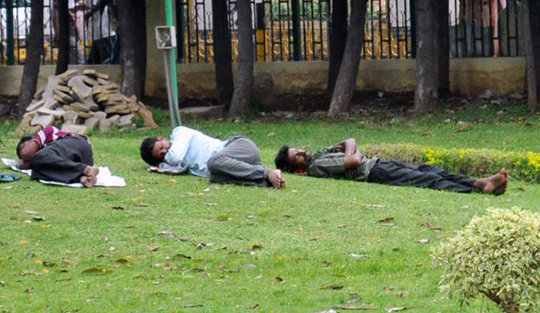New Delhi, Mar 16: Indians are among the poorest sleepers in the world, clocking in an average of 6.55 hours of sleep a night, a report by fitness solutions firm Fitbit said today.

Among the 18 countries surveyed, India was only ahead of Japan, which saw its residents getting 6.35 hours of sleep on an average.
People in New Zealand, the UK and Australia seemed to get the most sleep on average per night at 7.25 hours, 7.16 hours and 7.15 hours a night.
"The sleep statistics, based on aggregated and anonymous Fitbit data from January to December 2016, also revealed that Asians get less sleep on average than their American and European counterparts," Fitbit said in its report.
Along with diet and exercise, good sleep plays a critical role in health and overall well being, from protecting against heart diseases, diabetes and obesity to boosting neurocognitive functions, mental health and longevity.
"From helping maintain a healthy immune system, to preserving your cognitive functions and managing a healthy weight, your sleep – or lack of – plays a critical role," Dr Allison Siebern, Stanford University and Fitbit Advisory Panel Sleep Expert said.






Comments
Add new comment